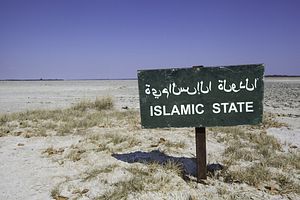On April 13, local media cited Malaysian officials as saying that around 70 army personnel were found to have been involved with the Islamic State in Iraq and Syria (ISIS) militant group.
The reports were based on comments by Deputy Defense Minister Abdul Rahim Bakri, who told the country’s parliament that the figure had been confirmed with the police. Bakri, who was responding to a question by a lawmaker who asked how the ministry was ensuring soldiers did not join ISIS, did not provide any further specifics on the extent of this alleged involvement.
“The army is monitoring the situation via its investigation and intelligence division, together with its human resources section,” Bakri said according to The Straits Times.
“If army personnel are found to embrace elements of ISIS, the army and police will cooperate in our efforts to counsel them and restore their faith in accordance with proper teachings,” he added.
Bakri also reportedly said in response to an earlier question that recruits go through a stringent selection process, including checks on their criminal record, to ensure that false identification issues do not arise.
Anxieties about Malaysian armed forces personnel joining ISIS come amid government concerns about the group’s growing threat to the country’s national security. As The Diplomat reported previously, earlier this month Malaysian authorities detained 17 suspected militants for plotting to carry out terrorist attacks in the nation’s capital. Malaysian police chief Khalid Abu Bakar said the militants were part of a terror cell inspired by ISIS to create a similar regime in Malaysia, and civil servants and a security officer were reportedly part of the group.
The Malaysian government has been intensifying its crackdown on ISIS, with the country arresting dozens of people believed to be ISIS supporters – ranging from navy and air force personnel to university students – and recently passing a new anti-terror law. But as I have written earlier, the government’s approach has also sparked rights concerns among critics, who worry that the rising ISIS threat could be used to justify expanded powers for security forces who can then crack down on other political opponents as well. Some have pointed out that the Prevention of Terrorism Act (POTA) bears similarities to the Internal Security Act, which Prime Minister Najib Razak revoked in 2012 and had been previously used to detain critics including former deputy prime minister and opposition leader Anwar Ibrahim.































